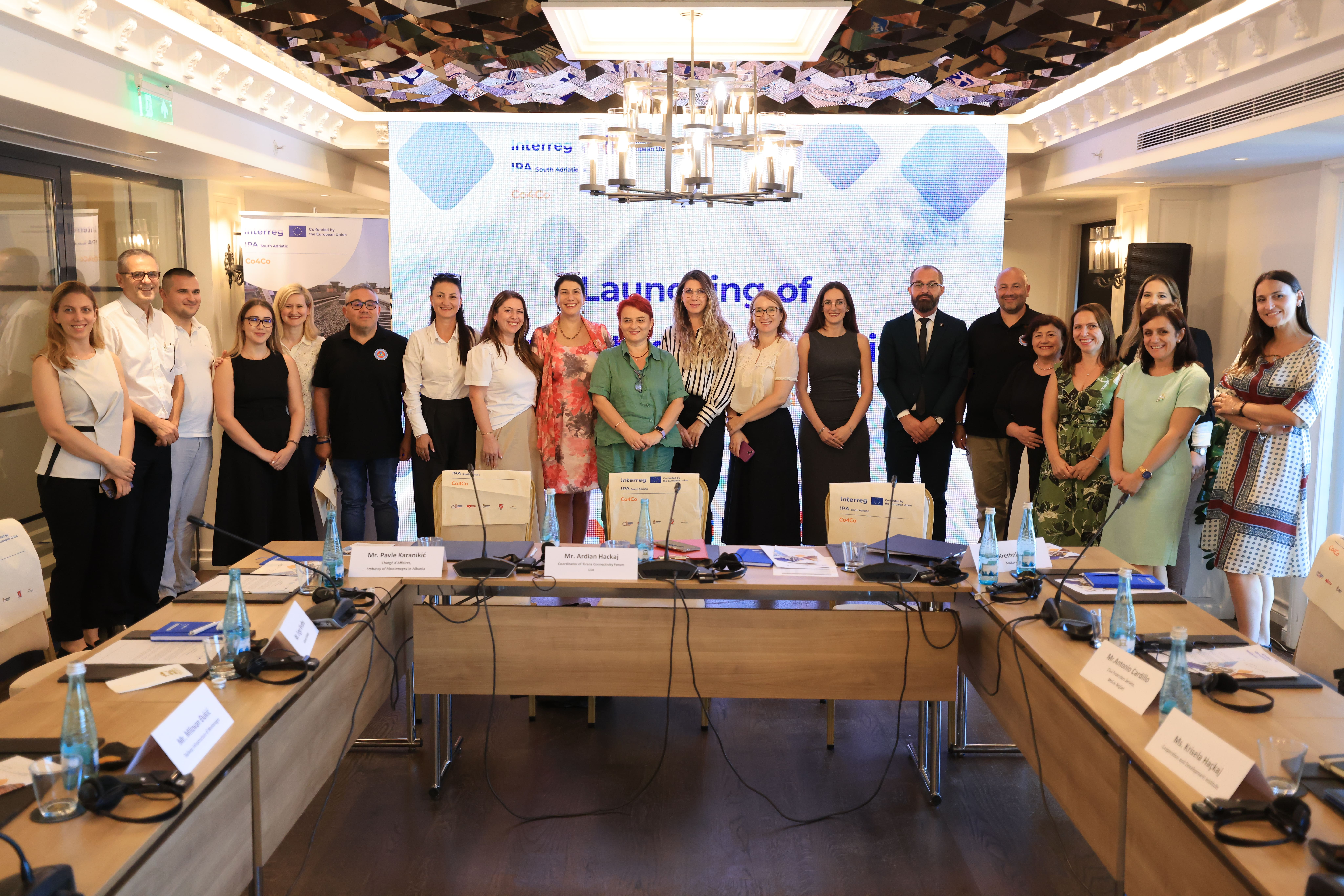
Montenegro and Albania are accelerating their integration pace toward full EU membership. An indicator of their advancement is their participation in the EU’s Core Trans-European Transport Network (TEN-T). This integration presents both significant opportunities and considerable challenges. The needs to modernize their rail infrastructure; to meet EU standards, are key requirements for both countries to be able to contribute to European transport connectivity
To support this transformation, the Cooperation and Development Institute (CDI), together with partners from Albania, Montenegro, and Italy, officially launched the Connected for Cohesion (Co4Co) initiative on 15 September 2025, in Tirana. Co-financed by the Interreg IPA South Adriatic 2021–2027, Co4Co aims to strengthen rail connectivity, institutional capacity, and regional coordination in the South Adriatic —laying the groundwork for full EU integration of Albania and Montenegro by 2030.
Organized as a side event of the Tirana Connectivity Forum, the Co4Co launching event brought together high-level representatives from national governments, EU institutions, and regional infrastructure agencies to discuss rail reform, EU funding readiness, and cross-border cooperation.
Mr. Ardian Hackaj, Coordinator of the Tirana Connectivity Forum, delivered opening remarks, stating: "Through this project, we aim to contribute to the preparation of rail sector for 2030. We want to build a better connected South Adriatic Region with a more influential voice in EU policymaking. Together with Montenegro, Albania, Puglia, and Molise, we want to ensure that our priorities are heard in Brussels and fully embedded in the future policies of cohesion, competitiveness, and enlargement — particularly at this crucial moment, as the new Multiannual Financial Framework is being prepared."
Mr. Pavle Karanikić, Chargé d'Affaires of the Embassy of Montenegro in Albania, reaffirmed his government’s commitment to regional connectivity and urged implementing institutions to recognize Co4Co’s crucial role in making the region smarter, greener, better connected, and more inclusive.
In a keynote address, Ms. Eridana Çano, General Director of Albania's State Agency of Strategic Programming and Aid Coordination, emphasized Co4Co's role as a practical tool at the service of policy-makers. She noted that it will empower Albanian institutions, the national rail companies, and policymakers to access EU instruments with greater confidence and competence. "The project will lay the groundwork for larger investments and ensure that projects under the TEN-T framework are implemented to the highest standards," she underlined.
A partnership of five institutions - CDI (Lead Partner), Albanian Railways, Railway Infrastructure of Montenegro and the Italian regions of Puglia and Molise - Co4Co will run until September 2027. The partners envision the initiative as a dynamic platform for bolstering institutional readiness and accelerating rail modernization. Rail companies will learn to navigate EU instruments; regional authorities will test new cooperation models, and researchers and civil society are expected to contribute with research, production of data and advocacy.
Mr. Gilles Kittel, Team Leader for the Instrument for Pre-Accession, Enlargement Negotiations, and EUSAIR at the European Commission's DG Regio, stated that the Co4Co initiative leverages Italy's experience and fosters equal-footing cooperation between member states and candidate countries. He also added that the project contributes to the EUSAIR Master Plan on Transport by bridging a key connectivity gap and creating synergies across sustainability, competitiveness, governance, and regional cooperation.
Mr. Dejan Lasica from the Transport Community highlighted that Co4Co aligns closely with two key pillars of the Rail Working Plan: the modernization of railway lines and the strengthening of cooperation between Western Balkan countries and EU member states.
In her closing remarks, Ms. Zana Josa from the Ministry of Infrastructure and Energy of Albania reaffirmed the country’s commitment to prioritizing rail and transport connectivity as a strategic tool for European integration by 2030. Ms. Josa commended the project dimension of transfer of knowledge and expertise from Italy, which will bring valuable experience with various EU funding instruments. “This exchange – she added - is essential for advancing human capital policies in our railway sector”.




